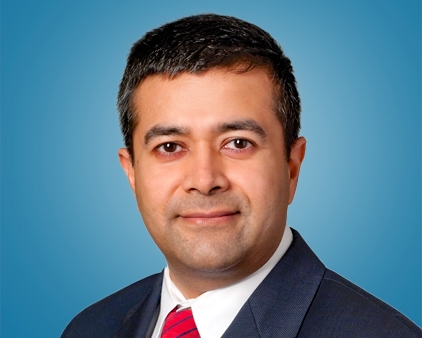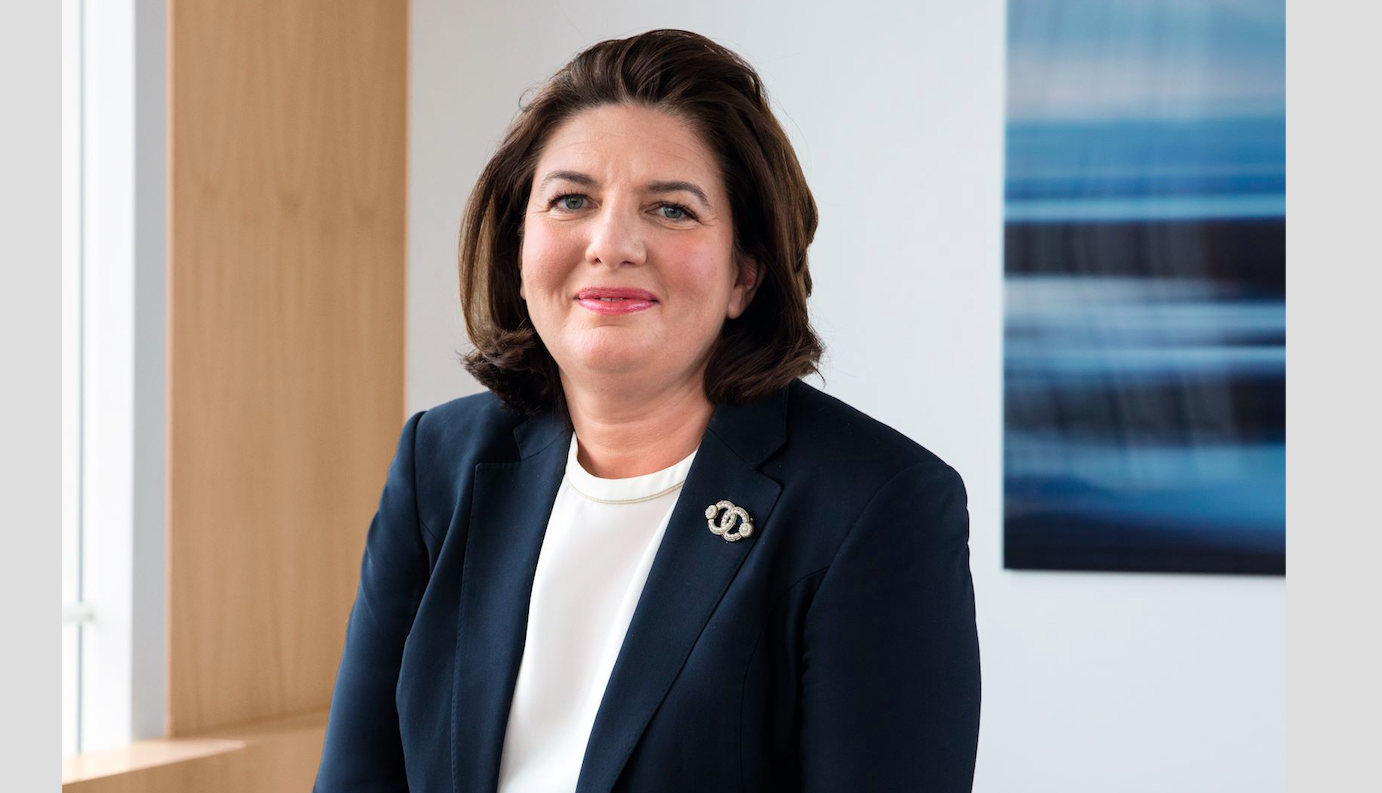Paresh Upadhyaya is Fixed Income and Currency Strategy director and a portfolio manager at Amundi Asset Management. He also leads Amundi Pioneer’s currency research effort from Boston and advises the firm’s global fixed income and equity investment staff on currency-related issues. With a degree in economics and international relations from Boston University and an MBA in finance from Boston College, he has held multiple senior positions at other asset managers and is an authority on fixed income and equity investing, sovereign debt, currencies and monetary policy. On 8 March, Funds Society had the opportunity to interview Mr Upadhyaya to discuss the economic impact of the war in Ukraine, especially the influence of this crisis on inflation, global monetary policies, fixed income and currency investment, as well as the company´s strategy for the current environment.
Fernando Moldenhauer, for Funds Society: Mr Upadhyaya, inevitably the first question has to be about the impact that the current situation in Ukraine is prompting on global economy. As you know we already came from an increasing inflation situation that has been now exacerbated by hikes on energy and commodities prices. We also have the sanctions issue, so the question is: how this situation is going to impact on global economy and on global stock markets? Can it pose a threat to the post-COVID recovery?
Paresh Upadhyaya: Great question. I think what we’re seeing is a geopolitical shock to the global economy. Global economy growth expectations, estimated at 4%, have been cut by at least half a percent or more. The surge in commodity prices is going to hurt, particularly countries that are big importers of commodities, especially oil importers. The other transmission mechanism for slowing global growth is through tightening financial conditions. Financial conditions have been excessively accommodative throughout the world, but those conditions are now beginning to tighten. Global monetary policy began to tighten up last year, but this year is going to start to gain more momentum with the US and the G10 economies entering the tightening cycle, joining much of the emerging markets that began their tightening cycle last year. So the combination of all those factors is going to lead to a weaker growth. I think we are still growing above the trend, but the risks are clearly to the downside and the greater the potential escalation in the Russian-Ukraine conflict, the greater the uncertainty.
FM: Given the current situation. Do you think the FED and other central banks will postpone their tightening policies in an attempt to soften the crisis?
PU: The issue that I think all central banks are facing and this is especially true for the Fed and the ECB, is that inflation has overshot their forecasts by multiples, not just a little, but by a lot. And there are a number of factors that go beyond just very strong domestic growth. The supply chains have aggravated the inflation situation, the demand for goods caused by the pandemic that have really driven up goods prices and energy. In the US we have the tightest labor market in decades while in Europe the unemployment rate is actually below the pre pandemic levels and we could see wages really began to pick up beginning September onwards.
Headline inflation is over 7% and will keep increasing, only starting to rolling over in late Q2 or early Q3. In the US, the risk of a wage inflation spiral is a fact. All of that suggests that even if the Fed wants to be a bit cautious given the external events with Russia, the domestic inflation situation, which is really a global issue, will prevent them from going slowly or more cautiously on rate hikes. So I think at the March meeting the Fed will hike by 25 basis points, and if I was to hazard a guess, my bias is still that the Fed will continue to hike at every meeting and maybe in September they will began to reevaluate if they continue the hiking at every meeting or not.
FM: We have recently seen the first movements of an approach between US and Venezuela government to study the possibility of increasing the Venezuelan oil imports to counter an eventual ban on Russian imports. Would that be an effective measure to avoid the negative effects of the prices hike?
PU: Venezuela is one that is believed to have one of the largest, if not the largest, untapped reserves of oil in the world. But Venezuela is only one of the countries where we can see sort of an increase in output. The other big 800 pound gorilla in the room is Iran, and there was some optimism among some that this may actually increase the odds of an Iranian nuclear deal, which would allow for a huge increase in supply to come into the markets. There are also rumors of President Biden flying out to Saudi Arabia to meet with Mohammed Bin Salman to try to see if Saudi Arabians can boost their output. All of that will not be enough to offset Russia, which is one of the top five largest exporting markets, but it would certainly help alleviate the situation.
FM: Let´s focus now on Amundi Asset Management´s experience with Rusia. Do you still have exposure to the country or you had already left it before the crisis? Did the sanctions impacted you?
PU: Fortunately we were not positioned in Russia. We have been investing in Russia over the last 10 years, but it has always been more tactical than strategic. We actually got out of those bonds on the local currency bonds about a year ago for fear of potential sanctions bills by the US Senate. We weren’t sure when the US would turn on and pass those bills, but one thing that has been sort of a constant trend when analyzing the Russian credit is the threat of sanctions that has been hanging over the country´s head since the invasion of Crimea.
FM: Let’s now open the door for a more in-depth analysis of fixed income markets. How do you think all this situation is impacting this particular sector?
PU: There is this tug of war that’s taking place between geopolitics that is giving a clear flight to quality safe haven status to sovereign bonds, like US treasuries. The precarious inflation situation is very destabilizing as a macro force, and it´s putting upward pressure on yields. Therefore, you will notice that the price action in US Treasuries and in global yields in general, has been very choppy, with sharp spikes up and down.
I think the general bias is that once we get a better handle of the situation or the markets have fully priced in the most likely outcome of the Russian-Ukrainian event, yields will continue to move higher, and therefore we favor being underweight duration in a lot of our core strategies. I would say that we’re still not there yet because I still think there could be a potential series of escalations that could lead to further rallies in Treasuriess or further flight to quality to Treasuries.
FM: As the company´s director of Fixed Income, what can you tell us about Amundi´s approach and latest products on fixed income. Is there any innovation or fund in particular you would like to present to the audience?
PU: So I would say there is a flagship fund, which is this strategic income fund, which is the one that I directly help to manage. And there, as I described earlier, our core strategic holding is to remain underweight duration, to be cautious on spread product, especially at investment grade, where we remain underweight because we think from a valuation perspective it´s hard for us to see yields fall any further. Once the Fed begins its tightening cycle, we think investment grade spreads will widen. On the other hand, we are overweight in high yield spreads, because we are cautiously optimistic that high yield can avoid some other churn that could take place.
FM: What about emerging markets? Given the current situation, is it a good idea to invest on them? What´s the Amundi vision on fixed income and currency investment in emerging markets right now?
PU: I would say that for emerging markets I think we’re going to be cautious for the moment, but emerging market equities and emerging market fixed income securities are already among the worst performing, if not the worst performing asset class in markets. So there is a good deal of pessimism that I would say is already reflected in emerging markets securities. Not to say it can’t get worse, there’s always a risk it could get worse, but I think we’re getting to the point that I think is going to begin to attract bottom fishing in various asset classes. I think what we need some more clarity on the Russian-Ukrainian war. Does this remain localized or is it starting to expand beyond the current war zone? That I think will really answer the question whether this is the time to start buying emerging markets across the board or if it´s time to start buying EM currencies against the dollar and selling the dollar against G10 currencies.
FM: OK, good. So I guess for your answer that you are cautious about the evolution of the euro and the dollar, you think they are going to be resilient. So can you talk a little bit about the new strategies, new approaches that Amundi is presenting regarding currency investment, or your current favorite products or vehicles of currency investment?
PU: On the currency side, you know the dollar has been on a bull market that I think will receive renewed momentum during the Russian-Ukrainian war as a dollar bill benefited from flight to quality. But I I think that the market is now beginning to price in a pretty healthy tightening cycle by the Fed, though I think we still have more to go to take us back to neutral and then even to restrictive territory. So there is still a little more upside to go in the dollar, but I think we’re getting close to where we may be seeing a consolidation in the dollar bull market and I would be looking for opportunities to begin to fade.



